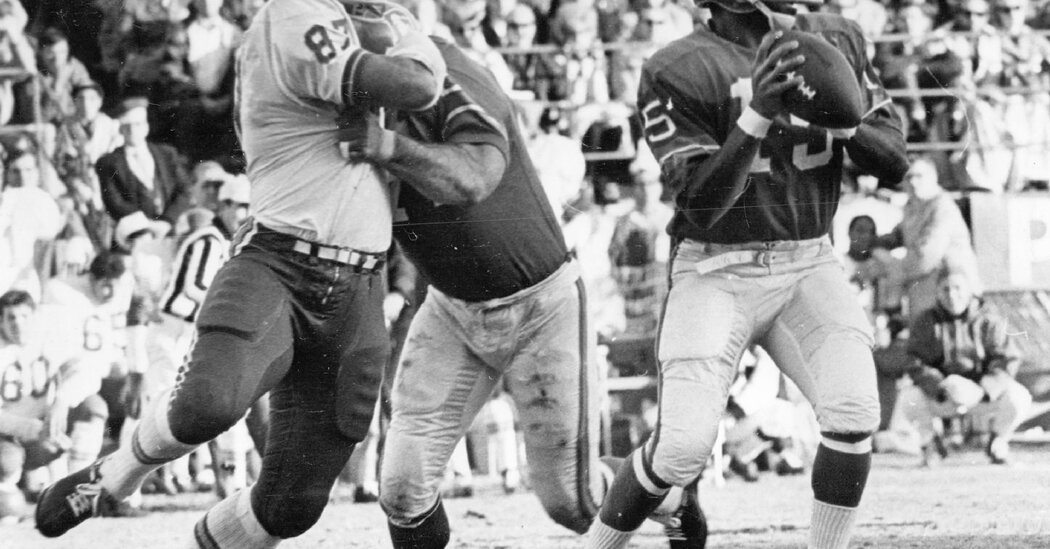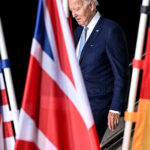
Marlin Briscoe, a pioneering quarterback who had to overcome prejudice against Black athletes playing the position during the 1960s, and who later won two Super Bowl rings as a wide receiver with the Miami Dolphins, died on Monday. He was 76.
Briscoe had been hospitalized in Norwalk, Calif., just outside Los Angeles, where he died of pneumonia. He had been having circulation problems in his legs, according to his daughter Angela Marriott.
Briscoe made pro football history in 1968 when, during his rookie year with the Denver Broncos, he became the first Black player to start at quarterback in the Super Bowl era. Though Briscoe had starred at quarterback in college, many coaches at the time believed that Black players were incapable of handling the complexity of that position.
He went on to set a team rookie record by tossing 14 touchdowns for the Broncos, who then played in the American Football League. He played in 11 games that season, starting five, and also ran for 308 yards and three scores.
Briscoe was known as the Magician, and his versatility was a precursor of the quarterbacks to come. But despite his achievements, the biases of the time kept him from playing quarterback long term. The Broncos would not let him compete at the position the next year, so he asked to be released and joined the Buffalo Bills, where he switched to wide receiver.
“All I wanted was a chance to showcase my skills,” Briscoe told The New York Times in 2014. “It was a mirror of what the ’60s were about, particularly in the African-American community. We said, ‘No, this is what we want,’ so it was easier for me. If it had been in the ’50s, no way in the world would I have done that. But I grew up in the right time to express myself.”
Briscoe played three seasons in Buffalo and had his best year in 1970, when he caught 57 passes for 1,036 yards and eight touchdowns and was chosen for the Pro Bowl.
In 1972, he joined the Miami Dolphins, who had lost in Super Bowl VI the previous season. The Dolphins were a run-first team and already had two established receivers in Paul Warfield and Howard Twilley, so Briscoe’s statistics declined.
But the Dolphins completed the N.F.L.’s only perfect season when they won Super Bowl VII, and they repeated as champions for the 1973 season. He later played for the Detroit Lions, the San Diego Chargers and the New England Patriots.
Marlin Oliver Briscoe Jr. was born on Sept. 10, 1945, in Oakland, Calif. His father, Marlin Sr., and mother, Geneva Briscoe, moved to Omaha when Marlin Jr. was young. He grew up in a multiethnic housing project that sat in the shadow of a meat packing plant and that also produced stars like Bob Gibson and Gale Sayers.
He played football at the Municipal University of Omaha (now the University of Nebraska Omaha), and though he was relatively small at 5-foot-10 and 175 pounds, he was an excellent passer and runner, and a natural leader. As a quarterback, he set 22 school records, including 5,114 passing yards and 53 touchdowns.
He was drafted by the Broncos in 1968 and on Oct. 6 of that year, in a game against the Cincinnati Bengals, he became the first Black starting quarterback in A.F.L. history.
He is survived by Marriott and another daughter, Rebecca Briscoe.




